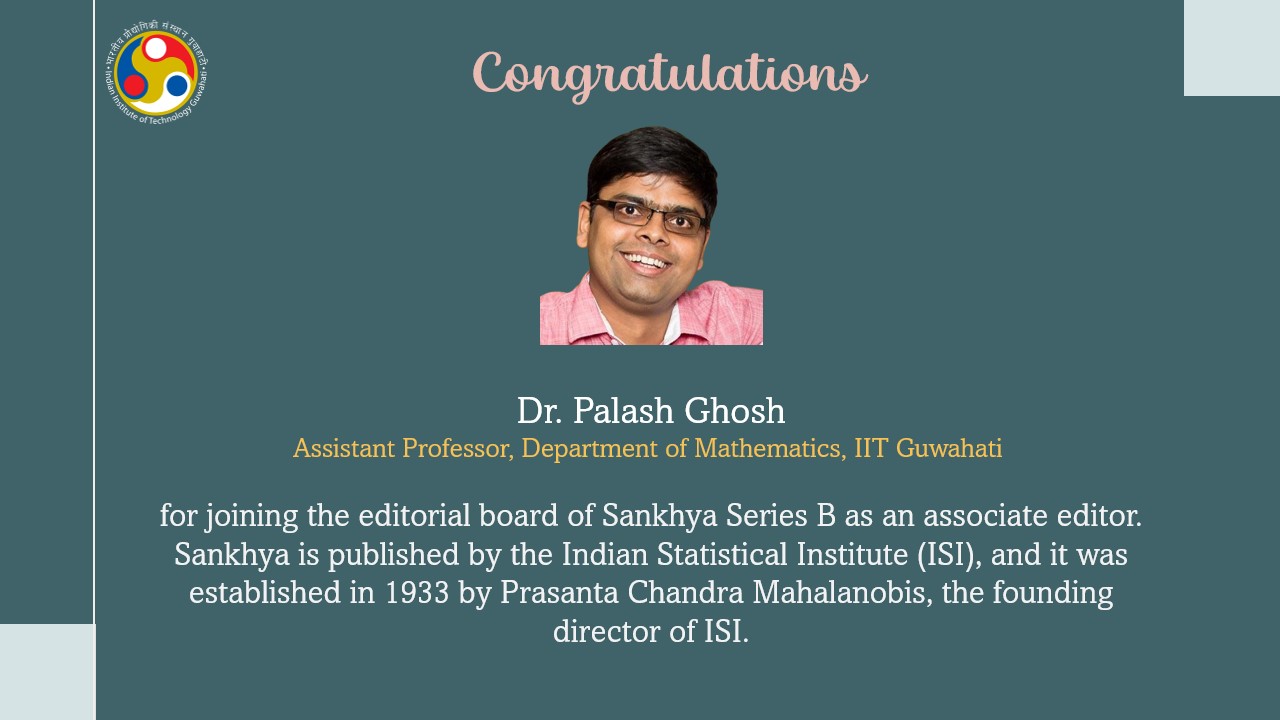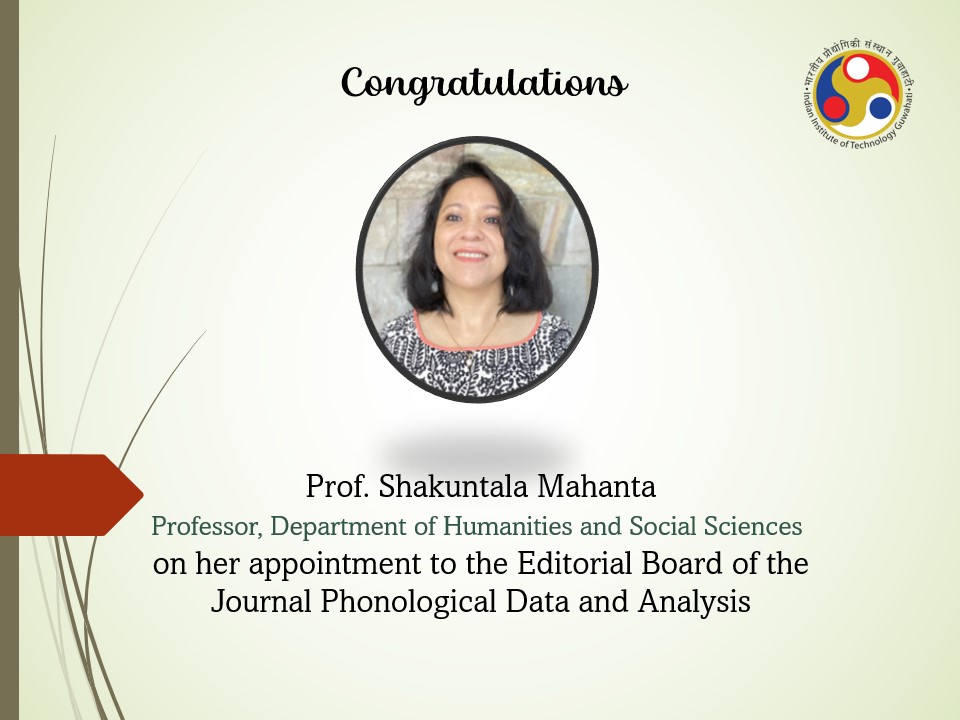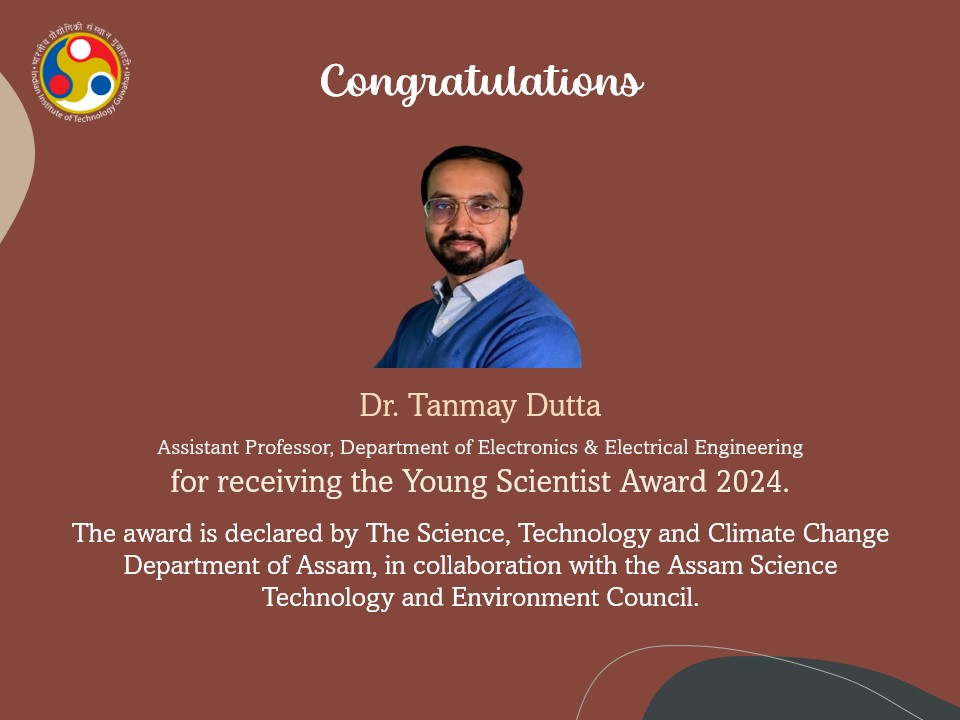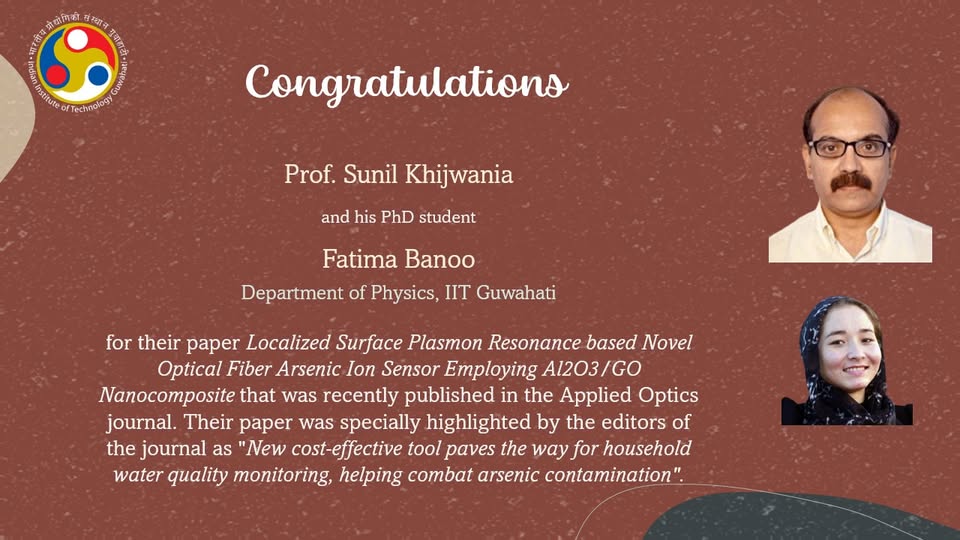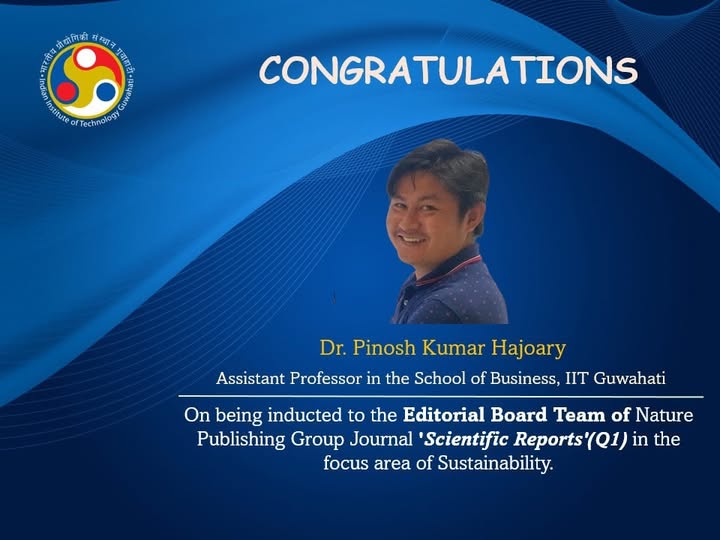Congratulations to Dr. Mihir Kumar Purkait for being appointed as Chair Professor of National Jal Jeevan mission
Posted: Mar 24, 2022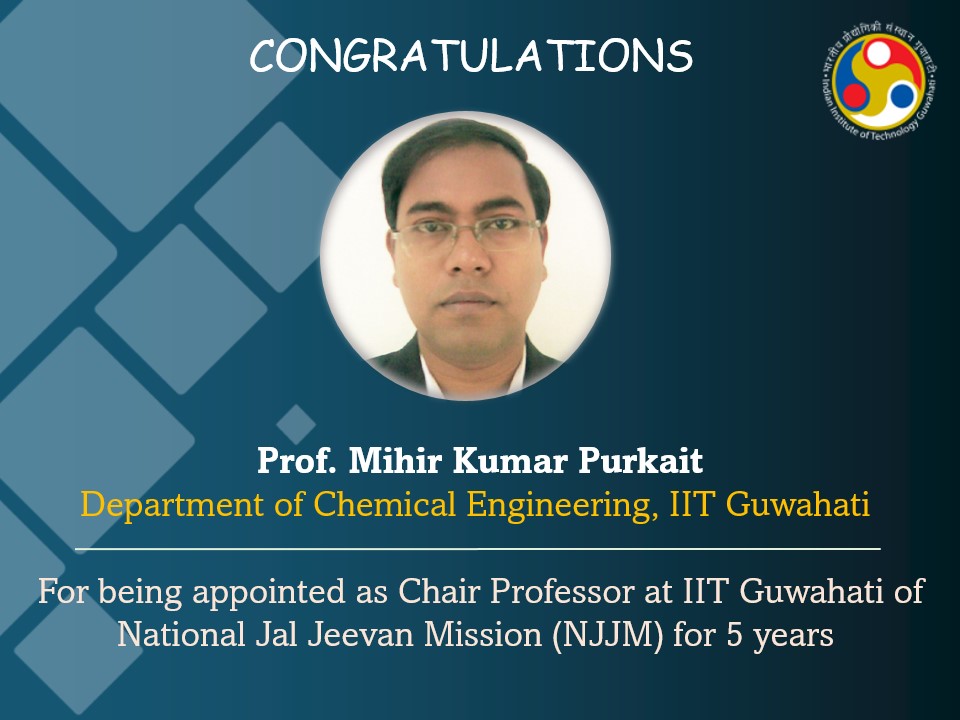
Ministry of Jal Shakti, Department of Drinking Water and Sanitation, National Jal Jeevan mission (NJJM), New Delhi, has set up JJM -Professor Chair in the focused area of “Water treatment technology” in IIT Guwahati. The Professor Chairs will work in collaboration with the Central and state governments universities / institutions, international and regional organizations, and State Water and Sanitation Departments / PHEDs on broad area of water treatment technologies.
Dr. Mihir Kumar Purkait, Professor of Department of Chemical Engineering, IIT Guwahati has been appointed as Chair Professor of national Jal Jeevan mission (NJJM) for 5 years for his active involvement in various societal activities and outstanding contribution in the area of water treatment technologies. Prof. Purkait has a portfolio of diverse innovations and developments in basic and applied research. He has the credit for industrializing various technologies for up and down stream operation of water and wastewater treatment technologies, waste to wealth generation, separation of value added product from plant source, and electrochemical reduction of CO2 to various products. He has developed and demonstrated several prototypes to provide iron, arsenic, fluoride, and other contaminants-free drinking water to the rural people of Assam with the help of his patented innovative water treatment technologies. Arsenic and fluoride contamination in drinking water is a foremost and growing concern among rural people not only in Assam but also in major parts of the country and IIT Guwahati’s technology will succor and assist the Government of India in providing contaminant-free drinking water to the people to fulfil the 6th Sustainable Development Goal (SDG-6).
Prof Purkait has developed various water treatment technologies based on membrane technology, nanotechnology, adsorption, electrocoagulation/coagulation followed by flocculation-sedimentation-filtration for the treatment of contaminated drinking water and industrial wastewater as well. He has also developed and installed many water treatment
plants in temples and schools and rural villages where pipe water supply is not available as a project deliverable funded of DST, DRDO, DBT, Govt of Assam etc.
On the adsorption technology, Prof. M K Purkait said, “Fluoride contamination is a worldwide problem now-a-days. To remove this contaminant from water, a new nano-adsorbent was developed in my laboratory by applying a novel nanomagnetite aggregation process through the formation procedure of iron oxide hydroxide, i.e., schwertmannite (Fe8 O8 (OH)6 (SO4). This is a composite of ferromagnetic and paramagnetic materials as well which improves the Fluoride adsorption capacity many fold than that of commercially available in the market. The methodology and details of this nano-adsorbent and its various forms are already published in several international journals of repute by my research team.”
Explaining his patented electrocoagulation based technology installed recently at Changsari, North Guwahati (50,000 LPD capacity plant) for the treatment of Fluoride contaminated drinking water Prof. Purkait, said, “In electrocoagulation process, an applied potential generates the coagulant species in situ as the sacrificial metal anode (aluminium or iron) dissolves, while hydrogen is simultaneously evolved at the cathode. Coagulant species aggregate the suspended particles or precipitate and adsorb dissolved contaminants. Tiny bubbles of hydrogen and oxygen that are formed during electrolysis of water, collide with air bubbles which compel to float the pollutant particles. Choice of electrode material depends on various criteria such as low-cost, low-oxidation potential, inertness towards the system under consideration. Aluminium has been seen to be very effective and successful in iron, arsenic and fluoride removal at favorable operating conditions”. The technology is equally effective for the treatment of industrial effluent including oily wastewater – Prof. Purkait told.
During the tenure, the JJM - Professor Chair will a) work mostly with the State Water and Sanitation, Rural Water Supply, PHE Departments and the State and District Water & Sanitation Missions; b) lay emphasis on capacity building, and maintain balance between capacity building, outreach, academic programmes & educational activity and research in water treatment technologies; c) conduct high quality empirical and applied research in
rural drinking water sector that is aligned to the objectives and priorities of Jal Jeevan Mission; d) disseminate and share research findings with relevant stakeholders; e) serve in an advisory capacity to NJJM in matters of policy or technology; f) function as a think-tank in the selected focus area, in particular, and rural water supply sector in general; and g) conduct Ph.D. programme and related course work in the selected focus area.


